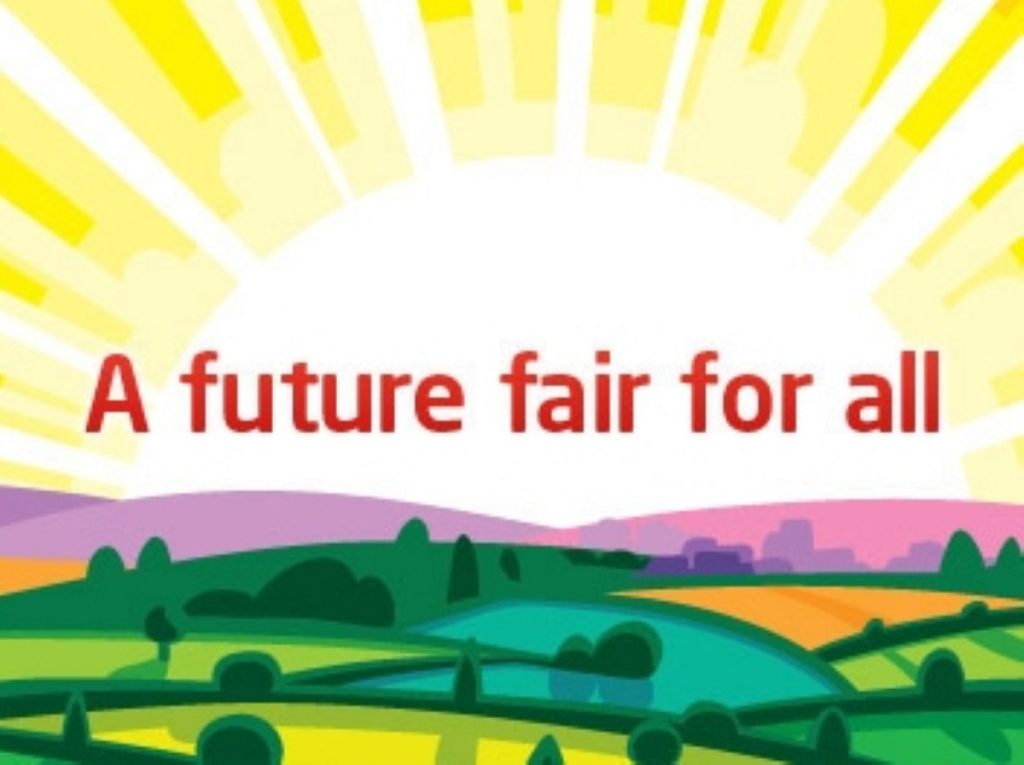Labour manifesto 2010: Reform the state and the market
By Ian Dunt
Gordon Brown has launched the Labour 2010 manifesto in Birmingham, with a pledge to reform both the state and the market.
The Labour leader said he wanted a manifesto that could encourage entrepreneurship and innovation, but also one which took lessons from the financial crisis.
“In building the future Labour will be restless and relentless reformers – reformers of the market, and reformers of the state,” Mr Brown said.


He promised “a Britain where we demand a new culture in the City – with standards in the boardroom and finance that look to the long-term interests of British business and industry – and safeguards investors, workers and consumers too.”
Mr Brown spoke of “a Britain where banks serve the people and not the other way around, and banks pay their fair share to society through an international banking tax”.
But he was careful to stress his “pro-enterprise” credentials.
The Labour manifesto laid bare
Mr Brown’s rhetoric against both the market and the state indicates Labour wants to satisfy public anxiety about the financial crisis without alienating businesses.
Many analysts had predicted a Blairite feel to the manifesto, especially given the public service reforms proposals being revealed over the weekend.
The assumption among Westminster observers was that Labour has been frightened by the supportive response of the business community to the Tories’ commitment to scrap Labour’s national insurance tax hike.
Video: Labour manifesto launch film
But Mr Brown has made considerable political leverage from his decidedly centre-left rhetoric in the wake of the financial crisis. The manifesto courts both camps, with pledges to reform the banks balanced out by a moderate message to business.
The two-way rhetoric also serves to satisfy both wings in the party, represented by Peter Mandelson’s Blairite agenda on the one hand and Ed Balls’ more traditionally Labour agenda on the other.
When a journalist told Mr Brown the manifesto looked like a Blairite manifesto, the prime minister replied: “I’m proud of what we achieved under Tony Blair.”
Analysts also noted how many references to ‘New’ Labour appeared in the document.
Writing in the foreword to the manifesto, Mr Brown said: “This cannot, and will not, be a ‘business as usual’ election or manifesto.”
The manifesto includes no major spending commitments, reflecting the state of the nation’s finances.
“There is a determination for every penny to be used wisely, and, as present plans make clear, to give the maximum protection to frontline public services,” the prime minister added.
The absence of major spending projects is a clear defence to accusations of financial irresponsibility from opposition parties.
“We don’t just fix the roof, we built the entire hospital,” Mr Brown said, in a play on the oft-repeated Tory attack that he had failed to fix the roof while the sun was shining.
Labour promised not to raise the basic rate of income tax but there are no guarantees that VAT where stay where it is.
Paternity leave looks set to be doubled. There would also be help for first-time buyers with an initiative to help low-income families buy property and reforms to council house funding, so that 10,000 new homes can be built each year.
The creation of a Post Office bank is expected to be included, along with a clampdown on doorstep-selling and restrictions on takeovers of British firms.
Under-performing schools, police forces and hospitals will be taken over by teams from other organisations with a successful track record.
Parents could ballot to change the ‘ethos’ or leadership of a school.
All public sector workers will have to pass English speaking tests.
Nick Clegg’s chief of staff, Danny Alexander, said: “Every Labour manifesto since 1997 has been full of promises they have broken. They simply can’t be trusted to do a single thing they say.
“The tax system is less fair than when Labour came to power.”
The event comes at the start of a week which will see the campaign delve into the nuts and bolts of policy.
Tomorrow will see the publication of the Conservative manifesto, while Wednesday will see the Liberal Democrats unveil their package of election promises. On Thursday the first of the leaders’ TV debates takes place.

